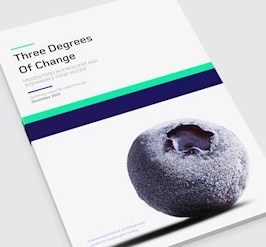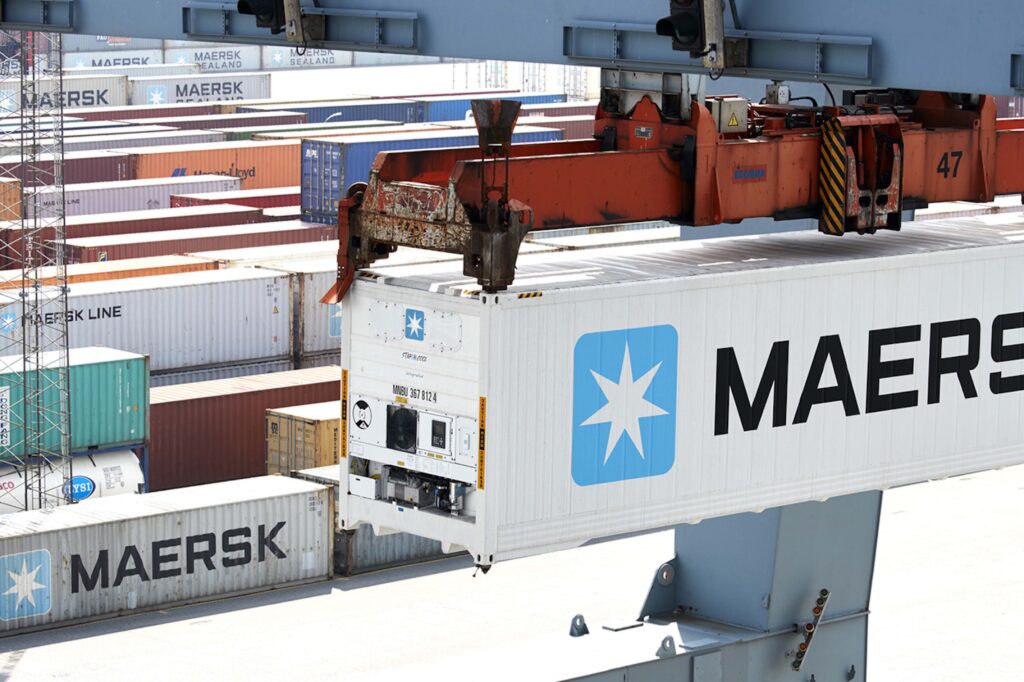London, UK: DP World is calling for a revision to frozen food temperatures in a bid to cut costs and reduce the environmental impact of frozen food storage and transport.
It is setting up an industry-wide coalition to explore the feasibility of changing the temperature that frozen food is transported and stored at from -18 °C to -15 °C, named Join the Move to -15 °C, which would lead to cost savings of between 5% and 12%.
Most frozen food is transported and stored at -18°C, a standard that was set 93 years ago and has not changed since. Researchers from the Paris-based International Institute of Refrigeration, the University of Birmingham and London South Bank University found that a move to -15 °C could make a significant environmental impact with no compromise on food safety or quality.
The study, which was supported by DP World, showed that the change could save 17.7-million tonnes of carbon dioxide a year, which is the equivalent emissions of 3.8-million cars a year. Further, the change would create energy savings of around 25 TW/h, which is equivalent to 8.63% of the UK’s yearly energy consumption. The change would also cut costs in the supply chain by at least 5% and in some areas by up to 12%, the study found.

“Frozen food standards have not been updated in almost a century. They are long overdue for revision. A small temperature increase could have huge benefits. However, regardless of each individual organisation’s commitment, the industry can only change what is possible by working together,” says DP World Group chief sustainability officer Maha Al Qattan.
The coalition has already been joined by industry organisations, including US-based AJC Group; AP Moller; Maersk of Denmark; Daikin of Japan; DP World; the Global Cold Chain Alliance; Switzerland’s Kuehne + Nagel International; US-based Lineage; Mediterranean Shipping Company of Geneva; and Singapore-based Ocean Network Express.
“Through this research, we can see how we can deploy accessible storage technologies in all markets to freeze food at sustainable temperatures, while reducing food scarcity for vulnerable and developed communities,” Al Qattan says.
“With this research and newly formed coalition, we aim to support collaboration across the industry to find viable ways to achieve the sector’s shared net-zero ambition by 2050. Join the Move to -15 °C will bring the industry together to explore new, greener standards to help decarbonise the sector on a global scale.”
The Join the Move to -15 °C initiative aims to create a just transition and deploy accessible storage technologies globally to freeze food at sustainable temperatures to reduce food scarcity for vulnerable and developed communities alike, she says.
“Cold chains are critical infrastructure, vital for a well-functioning society and economy. They underpin our access to safe and nutritious food and health, as well as our ability to spur economic growth. Cold chain infrastructure, and the lack of it, have implications for global climate change and the environment,” University of Birmingham and Heriot-Watt University Centre for Sustainable Cooling director Professor Toby Peters said.

“Cutting cold chain emissions and transforming how food is safely stored and moved today helps ensure we can keep sustainably feeding communities across the globe, as populations and global temperatures rise, thereby protecting nutritious food sources for years to come.
“Building on this research, DP World’s coalition can be a key tool for overcoming today’s food challenges too, providing a stable inventory of quality food for the 820-million starving people worldwide and security for another 2 billion who are struggling with food scarcity,” Peters says.
“DP World has made the research accessible to all and has invited stakeholders, industry leaders and interested parties to support the campaign.”
Maha Al Qattan, group chief people and sustainability officer, DP World, said in an open letter: “Back in the 1930s, the world agreed to set the temperature of much of the frozen food we collectively transport at -18° Celsius. In almost a century since, supply chains have modernised and cooling technology has advanced hugely.
“At the same time, we’ve seen exponential growth in the volume of blueberries, broccoli, shellfish and all the other food we supply for the plates of consumers worldwide.
“But that temperature standard has not changed. It was set at -18°C partly for convenience – it is the same as zero degrees Fahrenheit.
“So, at DP World, we set out to verify the potential savings in carbon and energy if everyone involved in the global cold chain turned the temperature up by three degrees, from -18 to -15.
“To check our theory, we commissioned independent academics from universities across Europe and Africa and the International Institute of Refrigeration – including experts on food science, climate change, socioeconomics and the cold chain. They concluded that the small change of three degrees can make a very big difference.
“It would save the equivalent carbon emissions of taking 3.8 million cars off the road and create energy savings of between 5% and 12%. With no impact on the quality of the food itself – food that the world badly needs.
“We believe the time is right to consider a move to -15°C as a new standard to reduce industry emissions, cut costs for operators and secure future food resources for communities everywhere.
“We believe this is a once-in-a-lifetime opportunity to change what is possible in the cold chain to the benefit of all.
“And we know that it will take all of us in the industry, working together, to make this change. Which is why we’re inviting our peers, partners and competitors to join us. Already Maersk, Lineage, MSC and many others are on board – and we’d love more of you to be part of our coalition for change.
“As Dubai prepares to host COP28 in the UAE, we invite you to join us to explore how the industry can make this change together.”







